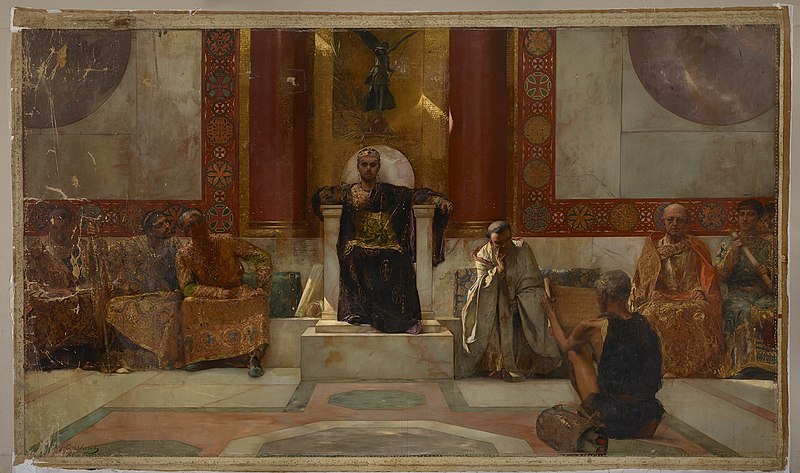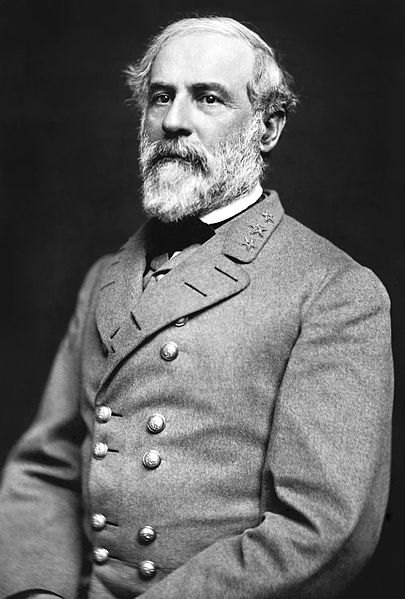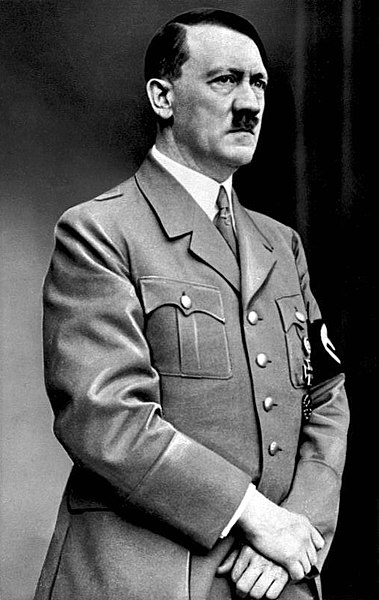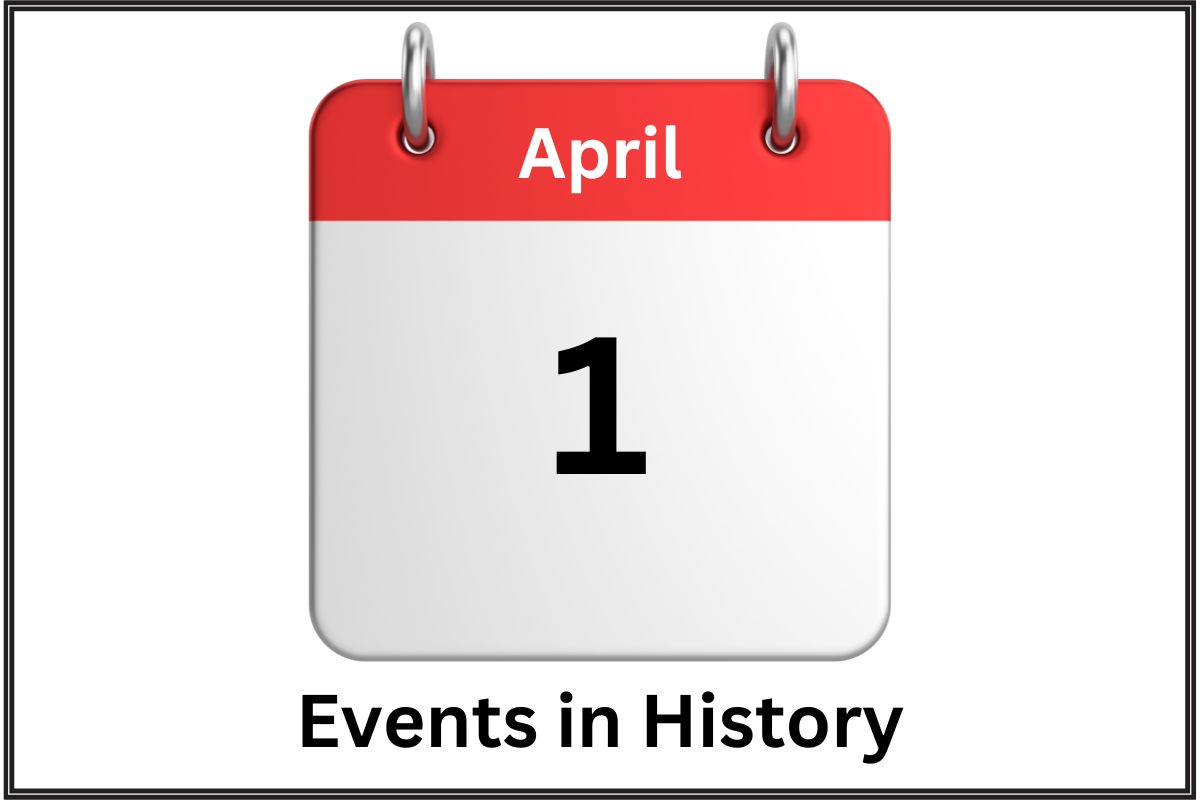April 1st, a day often associated with playful pranks and laughter, also marks the anniversary of a series of profound events that have significantly shaped the course of human history.
From the strategic political maneuvers of the Byzantine Empire to the technological innovations that have redefined human life, each event offers a unique lens through which we can understand the complexities and dynamism of our shared past.
In this article, we delve into twenty such events, exploring their context, significance, and the lasting impact they have left on the world.
April 1st Events in History
527 – Byzantine Emperor Justin I names his nephew Justinian I as co-ruler and successor to the throne
Justin I, nearing the end of his reign and suffering from ill health, named his nephew Justinian I as co-ruler. This decision would have profound implications for the Byzantine Empire. Justinian I, who would rule from 527 to 565, is remembered as one of the greatest Byzantine emperors.
Also Read: March 31 – On this Day in History
His reign was marked by ambitious administrative, military, and architectural projects, including the construction of the Hagia Sophia, one of the world’s most significant examples of Christian architecture.
Justinian’s legal reforms, codified in the Corpus Juris Civilis, would have a lasting impact on Western legal tradition.

1545 – Potosí, one of the highest cities in the world, is founded in Bolivia
The foundation of Potosí in present-day Bolivia marked the discovery of the massive Cerro Rico (“Rich Hill”) silver mines. The city quickly grew into one of the largest and wealthiest in the Americas during the 16th century, largely due to the extraction of silver that fueled the Spanish Empire’s economy.
Also Read: April 2nd Events in History
However, the wealth came at a significant human cost, including the forced labor of Indigenous people and later, African slaves, under the Spanish colonial system.
The mines of Potosí were so prolific that they significantly influenced global economies and even contributed to the beginning of global trade networks.
1572 – In the Eighty Years’ War, the Watergeuzen capture Brielle from the Spanish, leading to the recapture of several cities in the Netherlands and contributing to the independence of the Dutch Republic
The capture of Brielle by the Watergeuzen, a group of Dutch rebel sea beggars, marked a significant turning point in the Eighty Years’ War against Spanish rule.
This victory on April 1, 1572, was a catalyst for the Dutch rebellion, leading to the recapture of several key cities from Spanish control and boosting the morale of the Dutch resistance.
It eventually contributed to the establishment of the Dutch Republic, an important milestone in the struggle for Dutch independence. The event is still celebrated in the Netherlands today as part of the broader Dutch struggle for independence.
1789 – The United States House of Representatives holds its first quorum and elects Frederick Muhlenberg of Pennsylvania as its first Speaker
This event marked a pivotal moment in the establishment of the United States government under the new Constitution. The first quorum in the House of Representatives allowed for the official beginning of legislative activities in the young nation.
The election of Frederick Muhlenberg as the first Speaker of the House established a precedent for the role the Speaker would play in U.S. politics, acting as the presiding officer of the House and a key figure in the legislative process.
This was a foundational moment for the United States’ legislative branch, setting the stage for over two centuries of American democracy.
1826 – Samuel Morey patents the internal combustion engine
Samuel Morey’s patent for the internal combustion engine in 1826 represents a significant milestone in the history of technology and transportation.
While Morey’s engine and its immediate applications did not achieve widespread recognition or use, his invention laid the groundwork for the development of the modern internal combustion engine, which would become the driving force behind the automobile industry and a key component of the industrialized world’s transportation systems.
Morey’s engine, running on alcohol and turpentine, demonstrated the practical use of internal combustion for powering machinery, a concept that would revolutionize transportation in the 19th and 20th centuries.
1854 – Charles Dickens’ novel “Hard Times” begins serialisation in his magazine, Household Words
“Hard Times” was first published in serial form in the magazine “Household Words,” which Charles Dickens also edited. This novel is particularly notable for its critical examination of the social and economic conditions of the time, especially the impacts of the Industrial Revolution on the working class in England.
“Hard Times” critiques the philosophy of Utilitarianism, which prioritized efficiency and productivity often at the expense of human empathy and social welfare. Dickens’ portrayal of the fictional Coketown and its inhabitants reflects his concerns about the dehumanizing effects of industrialization and the neglect of imagination and morality in education and work life.
This work remains a significant literary contribution to discussions on social reform and the human consequences of industrial progress.

1865 – American Civil War: The Union Army successfully attacks Confederate forces in the Battle of Five Forks, pushing General Robert E. Lee towards surrender
The Battle of Five Forks, fought on April 1, 1865, was a crucial engagement towards the end of the American Civil War. It occurred in Virginia, near Petersburg, marking a decisive victory for the Union forces under the command of General Philip Sheridan.
This battle effectively cut off one of the last major supply routes to the Confederate capital of Richmond, the South Side Railroad, and prompted General Robert E. Lee to abandon his positions in Petersburg and Richmond.
The events following the Battle of Five Forks led directly to the surrender of Lee’s Army of Northern Virginia at Appomattox Court House on April 9, 1865, essentially bringing the Civil War to a close. The Union’s success in this battle was pivotal in hastening the end of the conflict and the preservation of the United States.
1873 – The British steamer RMS Atlantic sinks off Nova Scotia, killing 547 in one of the worst marine disasters of the 19th century
The sinking of the RMS Atlantic represents one of the deadliest maritime disasters of the 19th century, occurring near Halifax, Nova Scotia. The Atlantic was a White Star Line steamship, making its 19th voyage from Liverpool to New York City with over 1,000 people on board when it ran aground and sank.
The tragedy was largely attributed to navigational errors compounded by harsh weather conditions and the ship running low on coal. The significant loss of life underscored the perils of transatlantic travel at the time and led to improved safety standards for ships, including better life-saving equipment and procedures for emergency situations.
1889 – The Eiffel Tower is officially opened to the public at the Universal Exposition in Paris
The Eiffel Tower’s completion and public opening were milestones in architectural and engineering history, symbolizing human ingenuity and the industrial age’s capabilities.
Designed by Gustave Eiffel for the 1889 Exposition Universelle (World’s Fair) held to commemorate the centennial of the French Revolution, the tower was initially criticized by some of France’s leading artists and intellectuals for its design but has since become a global icon of France and one of the most recognizable structures in the world.
Standing at 300 meters tall at the time of its completion, it was the world’s tallest man-made structure until the completion of the Chrysler Building in New York in 1930. The Eiffel Tower remains a major tourist attraction and an enduring symbol of Parisian and French cultural pride.
1891 – The Wrigley Company is founded in Chicago, Illinois, by William Wrigley Jr., initially as a soap and baking powder company before turning to chewing gum
The Wrigley Company’s founding by William Wrigley Jr. in 1891 marks a significant chapter in American business history. Initially, Wrigley started by selling soap and offered baking powder as a promotional incentive. The baking powder proved to be more popular, prompting Wrigley to switch his business focus.
Later, he began offering two packages of chewing gum with each purchase of baking powder, which led to the realization that the gum was even more popular than his other products.
This insight prompted Wrigley to pivot his business entirely towards producing and selling chewing gum, eventually making the Wrigley Company one of the largest and most well-known chewing gum manufacturers in the world. The company’s success story is a classic example of innovation, adaptability, and the importance of understanding market demands in entrepreneurship.
1908 – The Territorial Force (later renamed the Territorial Army) is created in the United Kingdom
The Territorial Force, established on April 1, 1908, was a volunteer reserve component of the British Army intended to bolster the country’s defence capabilities. This organization was part of a broader military reform effort spearheaded by Secretary of State for War Richard Haldane, in response to the growing need for a more efficient and effective reserve force following the Boer War.
The Territorial Force was organized to provide a second line of defence in case of an invasion and to support the Regular Army overseas if necessary. In 1921, it was renamed the Territorial Army. Throughout both World Wars, the Territorial Army played a critical role in Britain’s military efforts, demonstrating the importance of reserve forces in national defense strategies.
Its legacy continues today in the form of the Army Reserve, highlighting the enduring value of volunteer soldiers in the UK’s military framework.

1924 – Adolf Hitler is sentenced to five years in jail for his participation in the “Beer Hall Putsch”; however, he serves only nine months
In 1923, Adolf Hitler and other leaders of the National Socialist German Workers’ Party (Nazi Party) attempted to overthrow the Bavarian government in what became known as the Beer Hall Putsch.
The failed coup resulted in Hitler’s arrest and subsequent trial, where he was convicted of treason and sentenced to five years in Landsberg Prison. Remarkably, Hitler served less than nine months of this sentence, during which time he dictated the first volume of “Mein Kampf” to his deputy, Rudolf Hess.
His relatively lenient treatment and early release reflect the sympathetic views some in the judiciary had towards his nationalist ideology. This period of imprisonment also marked a significant turning point for Hitler and the Nazi Party, as they would subsequently pursue power through electoral politics.
The episode is a stark reminder of how extremist movements can gain momentum in times of political and economic instability.
1933 – The recently elected Nazis under Julius Streicher organize a one-day boycott of all Jewish-owned businesses in Germany, heralding more severe persecutions
On April 1, 1933, shortly after Adolf Hitler came to power, the Nazi Party initiated a nationwide boycott of Jewish-owned businesses in Germany. This action was orchestrated by Julius Streicher, a prominent Nazi official and virulent anti-Semite, among others.
The boycott marked one of the first large-scale, state-sponsored actions against Jewish citizens and served as a precursor to the increasingly brutal and systematic persecution that would culminate in the Holocaust. The Nazis used propaganda to encourage the German populace to refrain from patronizing Jewish establishments, falsely alleging Jewish conspiracy and malfeasance.
This event is significant as it demonstrated the Nazi regime’s willingness to use economic measures as part of its broader strategy of antisemitic persecution, setting the stage for the atrocities that would follow.
1945 – World War II: American forces land on Okinawa in one of the largest amphibious assaults of the war
The Battle of Okinawa, which began on April 1, 1945, was one of the Pacific War’s last major battles and the largest amphibious assault in the Pacific theater during World War II. U.S. forces aimed to secure Okinawa as a base for air operations for the planned invasion of the Japanese mainland.
The battle was marked by intense and brutal combat, with significant casualties on both sides and among the Okinawan civilian population.
The Japanese employed kamikaze attacks extensively, causing considerable damage to U.S. naval forces. The capture of Okinawa provided the Allies with a strategically important base but at a high cost, leading to further consideration of alternatives to a mainland invasion of Japan.
The battle’s significance is also marked by its role in the decision to use atomic bombs against Hiroshima and Nagasaki to end the war more swiftly.
1957 – The BBC broadcasts the spoof documentary “Spaghetti Tree”, one of the most famous April Fools’ Day hoaxes of all time
On April 1, 1957, the British Broadcasting Corporation (BBC) aired a three-minute segment on its current affairs program Panorama that featured a family in southern Switzerland harvesting spaghetti from the family “spaghetti tree.” At the time, spaghetti was relatively unknown in the UK, and some viewers were unfamiliar with how it was produced.
The report, narrated by respected broadcaster Richard Dimbleby, showed women carefully plucking strands of spaghetti from tree branches and laying them in the sun to dry. The segment was so convincingly presented that many viewers were fooled, leading to an influx of inquiries about how to grow spaghetti trees.
1970 – President Richard Nixon signs the Public Health Cigarette Smoking Act into law, banning cigarette advertising on television and radio in the United States starting on January 2, 1971
The Public Health Cigarette Smoking Act of 1970 was a landmark piece of legislation aimed at reducing the prevalence of smoking and its associated health risks in the United States. By banning cigarette advertisements on television and radio, the Act sought to limit the tobacco industry’s ability to market their products, especially to younger audiences.
This legislation was a significant victory for public health advocates and marked a pivotal moment in the ongoing efforts to regulate tobacco products and promote public awareness of smoking’s dangers.
The ban reflected growing concerns about the link between smoking and lung cancer, heart disease, and other health issues, following the Surgeon General’s report in 1964 that officially recognized these risks. The Act also required stronger health warnings on cigarette packaging, further emphasizing the health risks associated with smoking.
1976 – Apple Inc. is founded by Steve Jobs, Steve Wozniak, and Ronald Wayne
On April 1, 1976, Steve Jobs, Steve Wozniak, and Ronald Wayne founded Apple Computer Company (now Apple Inc.) in Jobs’ parents’ garage in Los Altos, California.
The company’s founding is a key moment in the history of technology and entrepreneurship, marking the beginning of what would become one of the world’s most innovative and valuable companies. Apple’s early products, including the Apple I and Apple II computers, played a significant role in popularizing personal computing.
The company’s focus on design, user experience, and innovation has led to the development of groundbreaking products like the Macintosh, iPod, iPhone, and iPad, fundamentally changing the technology landscape and how people interact with digital devices. Apple’s story from a small startup to a global tech leader epitomizes the potential of American ingenuity and entrepreneurship.
1979 – Iran becomes an Islamic republic by a 98% vote, officially overthrowing the Shah
In a national referendum held on April 1, 1979, Iranians voted overwhelmingly to establish an Islamic Republic, thereby formalizing the overthrow of Shah Mohammad Reza Pahlavi’s regime.
This vote came after months of turmoil and public demonstrations against the Shah’s rule, which was characterized by autocracy, widespread corruption, and close ties to the West, particularly the United States. The establishment of the Islamic Republic marked the culmination of the Iranian Revolution, led by Ayatollah Ruhollah Khomeini, who returned from exile to assume leadership of the country.
This shift significantly altered Iran’s political, social, and international orientation, moving it away from Western influence and towards a theocratic governance model based on Islamic law (Sharia). The event has had profound and lasting impacts on Middle Eastern geopolitics, U.S.-Iran relations, and the global discourse on religion and democracy.
2001 – Same-sex marriage becomes legal in the Netherlands, the first country in the world to allow it
On April 1, 2001, the Netherlands made history by becoming the first country in the world to legalize same-sex marriage, marking a monumental victory for LGBTQ+ rights and equality.
This groundbreaking legislation allowed same-sex couples to marry, divorce, and adopt children under the same conditions as heterosexual couples, setting a precedent for other countries to follow.
The move was the result of years of activism and advocacy within the Netherlands and signaled a significant shift in societal attitudes towards LGBTQ+ individuals. Since then, many other countries have enacted similar laws, reflecting a growing global recognition of the importance of equality and human rights for all, regardless of sexual orientation.
2004 – Google announces Gmail to the public
Google’s introduction of Gmail on April 1, 2004, was initially met with skepticism, partly because it was announced on April Fools’ Day, a day when the company was known for its playful hoaxes. However, Gmail was no joke.
It offered an unprecedented 1GB of free email storage space at a time when competitors offered a fraction of that, revolutionizing the way people thought about email storage and accessibility.
Gmail’s interface was designed for efficiency and speed, with a powerful search engine that made finding emails easy. Over the years, Gmail has grown to become one of the world’s most widely used email services, with continuous updates and innovations that have kept it at the forefront of digital communication.
Google’s introduction of Gmail is a key moment in the history of the internet, highlighting the company’s role in driving technological innovation and changing how people communicate online.
